#moeraki boulders
Explore tagged Tumblr posts
Text

Moeraki, Aotearoa.
📷: Fujifilm GFX100S & GF 45-100mm + Kase ND64
Instagram | YouTube
#photography#photographers on tumblr#landscape photography#new zealand#new zealand destinations#fujifilm#long exposure photography#long exposure#fujifilmxseries#moeraki boulders#Moeraki#south island#aotearoa
207 notes
·
View notes
Text
Original New Zealand Pokemon
Another post of Fakemon for my original Goorda region based on a combination of Australia and Aotearoa/New Zealand. I've given Australia much more focus so far, so I'm balancing things out by making more kiwi Pokemon. But not an actual kiwi Pokemon. I already did that one.

Tinamu, the Green Stone Pokémon, rock-type. These shy Pokomon live deep underground and are tended to by their parents. Their bodies are made of a rare and valuable green stone and they make their burrows near deposits of this stone. Miners looking to harvest this stone traditionally leave food for the Tinamu as a form of trade.

Tinamu evolves to Pouina, the Green Stone Pokemon, rock/ghost type. When a Pouina wraps its tail around its neck, it gains the power to see into the spirit world. The icon of a Pouina wrapped around itself is used as a symbol of harmony and connection to one's ancestors.

Pouina evolves to Mananamu, the Green Stone Pokemon, rock/ghost type. When a Mananamu ties its tail into a knot, it gains the power to walk between this world and the world of spirits. Legends say that in the past, war almost broke out between the living and the dead until a hero with a Mananamu calmed the ghosts. Since then, Mananamu have been used by psychics and shamans as messengers between worlds.
The Tinamu line are based on pounamu, several types of green stone found in Aotearoa that is culturally important to the Maori and is frequently seen carved into multiple symbols. I tried to work the carvings into the designs. They are also based on the Manaia, a legendary creature often depicted in pounamu carvings (I specifically took inspiration from this carving). The Manaia is a messenger between the human world and the spirit world and its symbol is used to ward off evil. It is often depicted with the head of a bird and the tail of a fish and is often depicted curled into a figure 8, which is where I got the idea of the Pokemon wrapping their tails around themselves. I also based Mananamu on a hadrosaur, specifically a Parasaurolophus, mostly because I thought it would be cool. Their names come form "tiny", "pounamu", and "Manaia"

Sprink: the Bungee Pokemon, normal-type. Sprink have long, prehensile tails that can extend to great lengths, then retract. They wrap their tails around tree branches and wit for bug Pokemon to pass beneath. Then, they jump, catch the bug, and their tails retract to pull Sprink back up with its prey. The sport of bungee jumping was inspired by Sprink.
Sprink is based on skinks, many species of which are native to Aotearoa, and bungee jumping, which (in its modern form) was invented in NZ. The markings on Sprink's body are based on safety harnesses. TBH, I may go back to the drawing board on this one. I feel like it's missing something. Its name comes from "skink" and "spring"

Pāunomacre, the Abalone Pokemon, psychic-type. These strange Pokemon levitate through the air with their psychic powers and habitually collect and examine objects with their tentacles and eyes. The iridescent colors on their shells constantly shift and can mesmerize those who look for too long. Jewellery and carvings made Pāunomacre shells are highly valuable due to their shifting colors and high quality.
Pāunomacre is based on abalone, large sea snails known for the layer of iridescent nacre (mother of pearl) that line the inside of their shells. The shells are often used to make jewelry and decoration. For Pāunomacre, I added an extra shell on the bottom, put the nacre on the outside, and made it into a flying saucer. he tentacles are inspired by sensory tentacles on abalone while the ring of blue eyes around the body comes from scallops. The name comes from "pāua" (the Maori word for abalone), "anomaly", and "nacre".

Korm, the Root Pokemon, ground/grass type. These worm-like Pokemon are actually burrowing plants. When they feel safe, Korm expose their rear ends to the air and unfurl the fronds growing from them to absorb sunlight. Korm have soft bodies that leave them vulnerable to predators. As a result, they are very shy and will burrow away at the first sign of danger. Dirt that Korm burrows through is left enriched in nutrients and supports plant growth.

Korm evolves to Woodworm, the Root Pokemon, grass/ground type. It has developed a powerful yet flexible armored tube of wood around its body that supports larger fronds that can reach higher into the air. When threatened, Woodworm retracts its soft body into its wooden tube. If a small forest appears out of nowhere, It is likely a colony of Woodworm that have decided to stop and photosynthesize for a while.
Korm and Woodworm are based on a number of influences. First, they are earthworms and Aotearoa and Australia have some remarkable large earthworm species. Earthworms help recycle nutrients into the soil, which is why Korm leaves enriched soil where it grows. Second, they are based on ferns and fern trees. The Koru is a spiral symbol that represents an unfurling silver fern frond, which I tried to recreate in Korm's design. The tube that Woodworm has is based on tube worms, aquatic relatives of earthworms that build tubes they can retract into for protection. Korm's name comes from "Koru" and "worm" while Woodworm's name is a pun on "wormwood".

Cololite, the Stromatolite Pokemon, rock-type. Cololite are so strange it took scientists decades before they deciphered its biology. Cololite is a colony of microbes that work together to grow a hollow structure of living rock. Smaller stones bud off of the central body and can be levitated and manipulated through unknown means. By the tine the central stone splits off of the rock it grows from, it is ready to evolve.

Cololite evolves to Concraki, the Stone Colony Pokemon, rock-type. Concraky is a group of spherical, hollow boulders built and controlled by a hive mind of microscopic organisms. The boulders levitate and can be arranged into any configuration, though they are always directed by the largest boulder. As the boulders grow, they crack open and eventually shatter. The fragments of shattered boulder are believed to act as seeds from which new Cololite grow.
Cololite and Concraki are based on stromatolites, stone structures built by generations of photosynthetic bacteria and archaea. As the bacterial colonies grow, they lay down layers of sediment that results in an iconic layered appearance that is represented in the base of Cololite. Most stromatolites are only known from sollils, but there are living ones living in places around the world, including Australia. Concraki is also based on the Moeraki boulders or Kaihinaki, a series of spherical, hollow concretions found on Koekohe Beach. I wanted to make something very bizarre with these, making a Pokemon that doesn't even look like a Pokemon. Their names come from "colony", "stromatolite", "concretion", and "Moeraki".
Previous posts in this series: new evolutions, misc 4, misc 3, single stages, non-natives, regional standards, creepy lines, regional variants, birds, early game standards, misc 2, misc 1, Johto starter variants, starters,
#fakemon#pokemon#new zealand#aotearoa#australia#pounamu#manaia#skink#bungee jumping#abalone#paua#ufo#earth worm#worm#fern#koru#tree fern#stromatolite#concretion#moeraki boulders#kaihinaki#maori mythology#art#digital art#new artist#drawing
29 notes
·
View notes
Text

26 notes
·
View notes
Text

2023_09_30
2 notes
·
View notes
Text
Dunedin to Oamaru
As I was checking out today, one of the house keepers said to make sure I check out Shag Point on the way up to Oamaru today, so that was my first stop. At Shag Point, there's a walking trail and a seal viewing track. I took the seal track to see what I could spot. There were plenty lounging around on the rocks, but I was really happy that I got to see three of them swimming around (all at different times).

I feel like I haven't gotten to see them in action much (because they're often not in action during the day), so it felt like a treat.
After Shag Point, I headed north to the Moeraki Boulders. These are spherical boulders that are scattered across the beach. They're actually kind of cool, though evidently they aren't quite as impressive as they used to be - anecdotally I was told that a recent storm resulted in a lot of extra sand/silt build up around the base of the exposed boulders, which means less is now exposed. Either way, if you go at low tide, there's still plenty to see.




After lunch at the Moeraki Boulders cafe, I still had a little bit of time to kill before checking in at my next accommodation. If you think of it, and you're reading this, send me a message and let me know what you think is standard check in time. I am sure I will get responses mostly in the 2-4 PM range, but let me tell you, I am always disappointed when it's 3 and not 2 PM check-in time. I think it's probably only been because most of my travel days have been quite short, so it means that I need to add in an activity during the travel and my refrigerated food is out of the fridge longer. Anyway, today was a 3 PM day, so I headed to the Oamaru Public Garden to kill some time. There, I saw some beautiful flowers, statues, and fountains, as well as another aviary! I wonder if sulphur crested cockatoos are really just that social or if I'm special, but both in Invercargill and Oamaru, they came all the way up close to the screen as soon as I stepped up. This one even came out from the back area! I actually don't have a picture because I only took videos (didn't want to risk my fingers for a picture).







After the gardens and checking in, I headed back out to do a bit of exploring. From my room, I could hear live music coming from not too far away, so I thought I should check it out. Turns out Scotts Brewery is hosting a local musician showcase - it was already well underway when I went out around 4 PM, and it is still going strong as I write this post at 9:15. Currently listening to a cover of Stevie Wonder's Superstition, and they just finished Teenage Dirtbag. All of the artists have actually been really good. When I went down, though, it was like the entire town of Oamaru was packed into this relatively small outdoor area, so I enjoyed the music from afar - wandering down Harbour Street. I ducked into Grainstore Gallery - part gallery, part museum, located inside an old grainstore, this shop is quirky at its finest. Here are a few faves.








For those who don't know, Oamaru is the steampunk capital of New Zealand, if not the world. So that might give you context for some of the pieces in the gallery. After the gallery, I headed to a different brewery (where I could still hear the music coming from Scotts) - Craftwork Brewery. I sat outside sipping on my lovely beer - the Citron Soleil saison. Although it is the first day of autumn today, "lemon sun" (translation for citron soleil) sounded like exactly what I wanted for the day.

I won't lie - I woke up this morning with a sore throat, feeling a bit under the weather, so after my beer, I headed back for a nice steaming cup of hot water with honey to try to soothe the throat. Then, I enjoyed the music from my open bedroom window as I relaxed and stayed in for the evening.
0 notes
Text
Pokemon Challenge 2024: Master Post (Part III)
>>Part I :: Part II<<
Here are the (continued) links to each of the individual Pokemon I will be creating during this project! This series is set in a fictional region called Te'Roa based on Aotearoa New Zealand, with the concept being Pokemon Land and Sky.
New Pokemon!
Ocstrosity - fighting octopus
Roubble | Sphoulder | evolution line - Moeraki Boulders
Stellashark | Celestishark | evolution line - star-themed sharks
Faunber | Venarson | Forrestfyre | evolution line - fiery deer
Sugarroll | Feybread | Pavloaf | evolution line - New Zealand baked goods
Babygrapes | Bunchler | Greatvine | evolution line - grapes
Naugget | Goldig | evolution line - gold nuggets
Flapflap | Stingflay | evolution line - stingrays
Tuinfernal - tūī bird
Kea - kea bird
Nightworm | Starworm - glow worms
Regional Variants
Te'Roan Raichu
Te'Roan Grimer | Te'Roan Muk | evolution line
Te'Roan Snorlax
Te'Roan Dratini | Te'Roan Dragonair | Te'Roan Dragonite | evolution line
Te'Roan Wooper | Voltsire | evolution line
Te'Roan Sableye
Te'Roan Pidove | Pidoven't | evolution line
Te'Roan Vanilluxe
Kapa Haka Style Oricorio
#art#my art#pokemon challenge 2024#pokemon#pokemon art#fakemon#new zealand#regional variant#fanart#pokemon fanart#pokemon land and sky
6 notes
·
View notes
Text

The Milky Way Above the Moeraki Boulders
Photo Credit: Yan Zhang
7 notes
·
View notes
Text
Moeraki Boulders
Glasshouse Images artist, Ron Rosenstock shares dramatic stock images. HAVE AN IMAGE SEARCH REQUEST? SEND ME A LIGHTBOX ASAP! Search our collection or simply send us an email with your specific request to photos@glasshouseimages or give us a call at (646) 256-1999 and we’ll make sure your search is a top priority. Also, check out our vintage collection, Circa Images and AB Archive. Glasshouse…
#black and white#black and white photography#Landscape#landscape photography#Ron Rosenstock#travel#travel photography
2 notes
·
View notes
Text
Første uge i New Zealand
Så gik turen endelig til New Zealand, og første uge er nu gået. Mikkel og jeg mødtes i Christchurch lufthavn d 30 december kl. 00:30 efter over fem måneder fra hinanden. Det var virkelig dejligt!
Vi startede vores tur med tre dage i Christchurch, hvor vi ikke lavede meget andet end at sove, hygge på vores hostel og gøre lidt klar til vores roadtrip. Vi brugte nytårsaften på en tapas restaurant med lækker mad og vin. Derefter tog vi hjem på hostel og begynde Ringenes Herre 1, hvor Mikkel faldt i søvn efter omkring 20 min. Vi gik altså i søvn kl 23:00 nytårsaften <3


Den 1. januar hentede vi vores lejebil, en Toyota Corolla, også begyndte vi vores rundtur. Vi skal køre rundt på hele New Zealand, og bo i telt. Vi starter i Christchurch på sydøen og afleverer bilen i Auckland på nordøen d 29. januar. Det bliver altså ca. en måned, hvor vi skal bo i bil og telt.
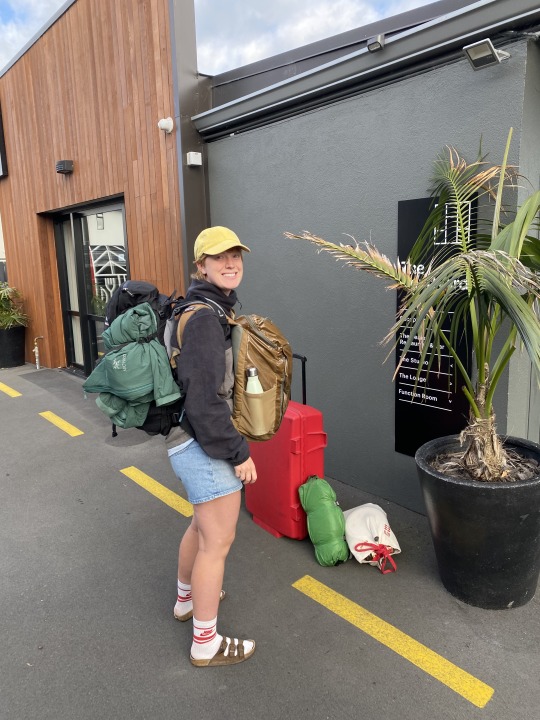
Første dag kørte vi fra Christchurch til Oamaru. På vejen stoppede vi ved Mt. Sunday, hvor vi så vores første Ringenes Herre lokation. Dette bjerg er nemlig lokation for byen Edoras. Det var en kort tur til toppen af Mt. Sunday, men udsigten var virkelig spektakulær. Virkelig godt startskud for vandreture i New Zealand.


Da vi landede i Oamaru, havde Mikkel fundet en campingplads, hvor der boede pingviner. Ved solnedgang sad vi altså ved havnen og spottede pingviner i vandet. Vi fik set to pingviner svømme, og en der hoppede op på land og gemte sig under en kano. Det var en meget hyggelig aften.

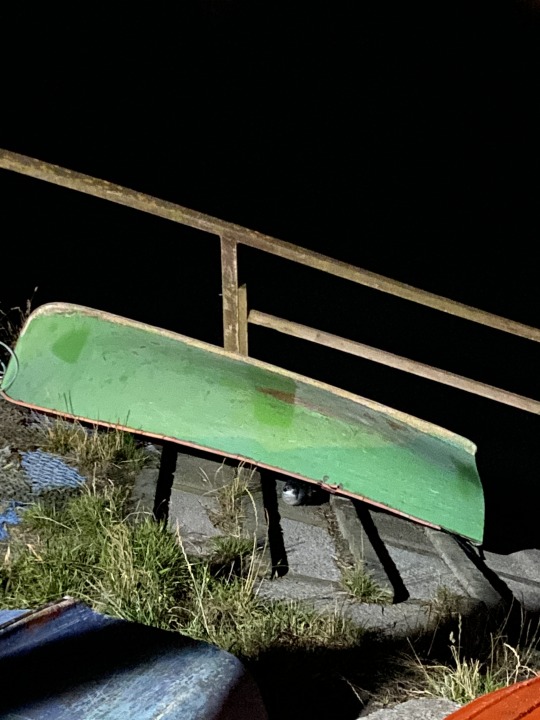
Dagen efter kørte vi til Dunedin, hvor der var masser af stop undervejs. Vi så Moeraki Boulders, som var nogle seje runde sten på stranden, vi så vanvittig mange sæler, som i heeelt vildt mange, også så vi seje sten i vandet. Det var en dag med mange stop og meget kørsel.

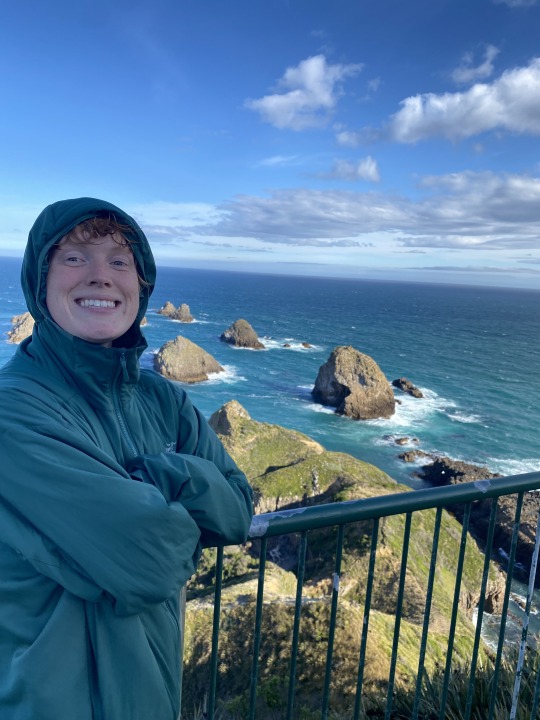

D 3. januar brugte vi dagen i the Catlins, som er et skov område i den sydlige del af sydøen. Her gik vi en vandretur langs en flod, hvor der var mange bregner og en sej hængebro. Bagefter kørte vi lidt rundt og fik set en del vandfald, med masser af vand i! Derudover så vi også Cathedral Caves, som var nogle stor klippehuler i strandkanten. De var ret vilde at være inden i. Inden dagen sluttede, kom vi også lige forbi Curio Bay, hvor vi fik udsigt over sandstrand og store bølger.
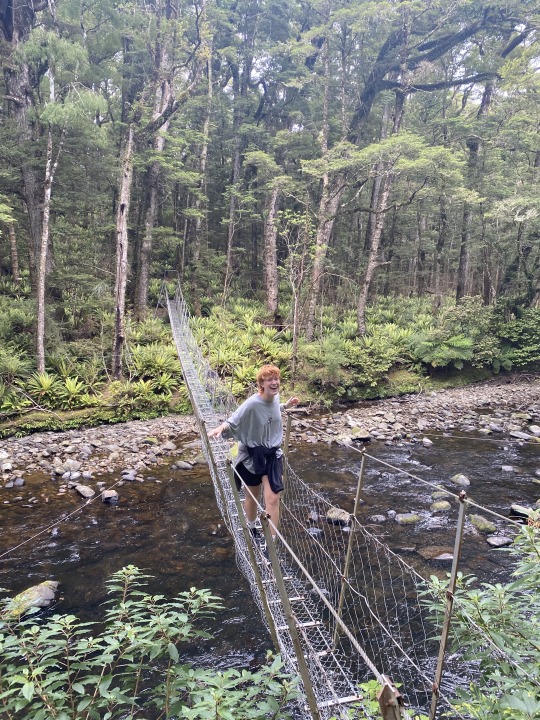



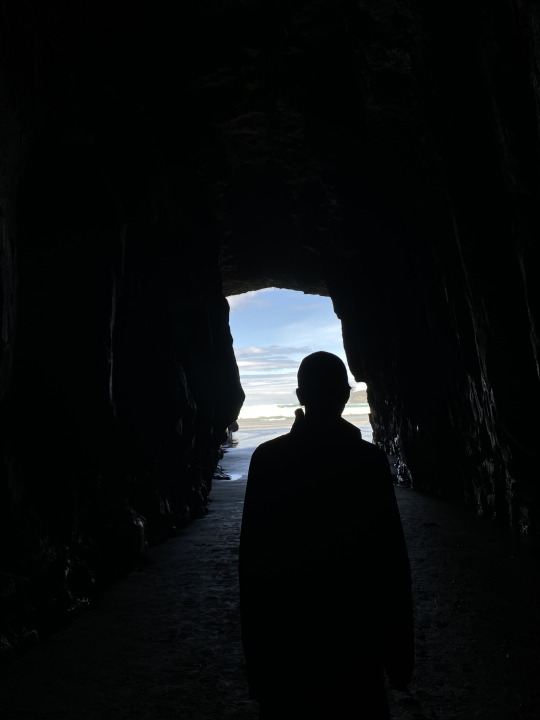
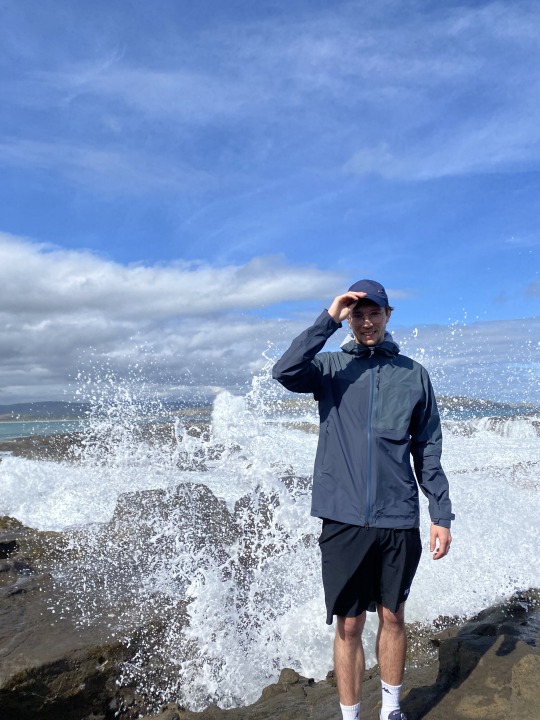

Da vi vågnede d 4. januar kørte vi ud på den sydligste del af sydøen, Slope Point, inden vi fortsatte mod Te Anau. På vej mod Fiordlands, stoppede vi ved nogle Lime Stone Caves, hvor man altså kunne gå nede i huler i jorden. Vi skulle frem med lommelygterne for at manøvre os rundt dernede, da der var bælgravende mørkt. Her fik vi også set vores første Glow Worms, som er orme der skinner i mørket. Det var en lidt skræmmende, men også vildt fedt tur! Vi fik da også lige vores første regnvejr på turen, så der blev lavet mad udenfor iført regntøj fra top til tå. Heldigvis stoppede det ca. en timer efter vi havde lavet mad (vi vidste ikke, hvornår det stoppede), så vi kunne sætte telt op i tør vejr. Men regntøjet blev testet, og det holdt!
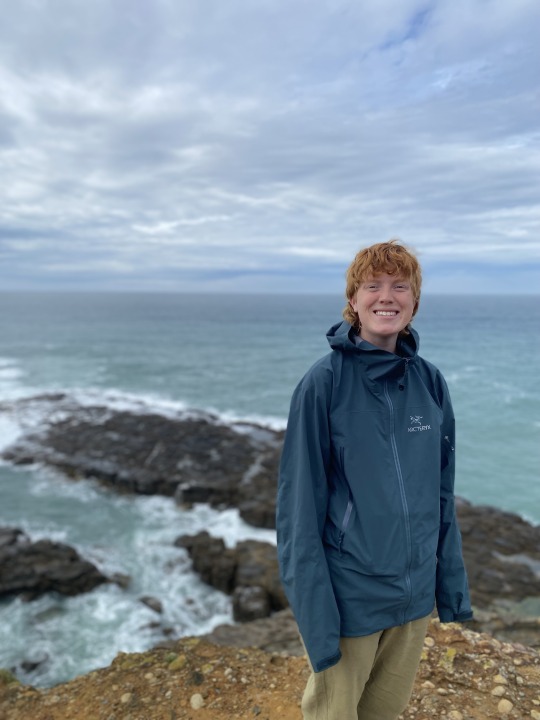



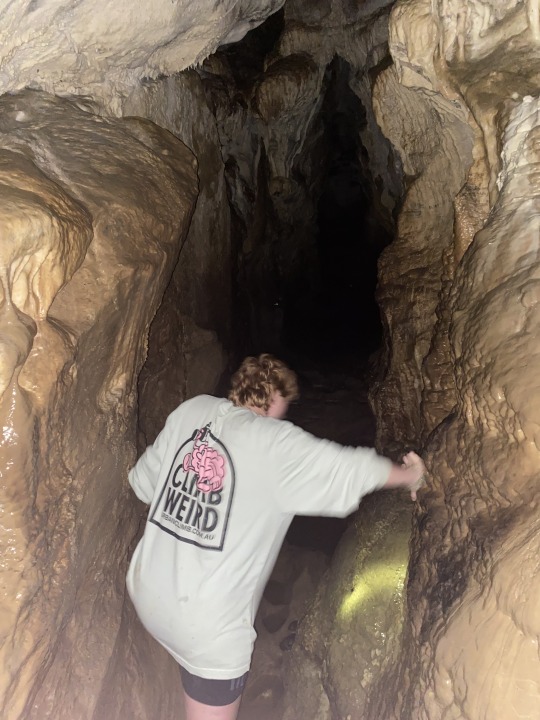

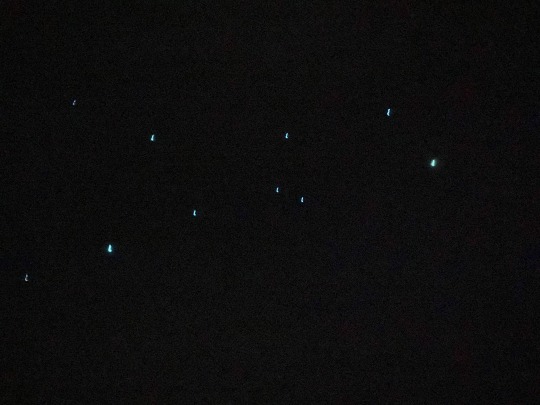
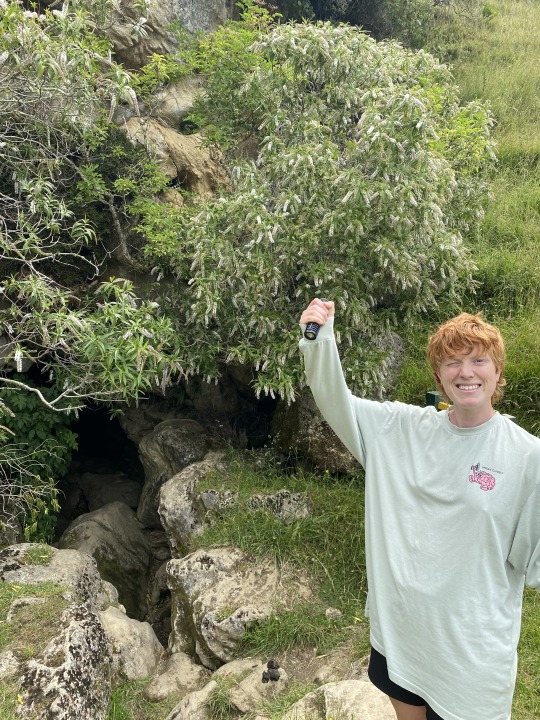
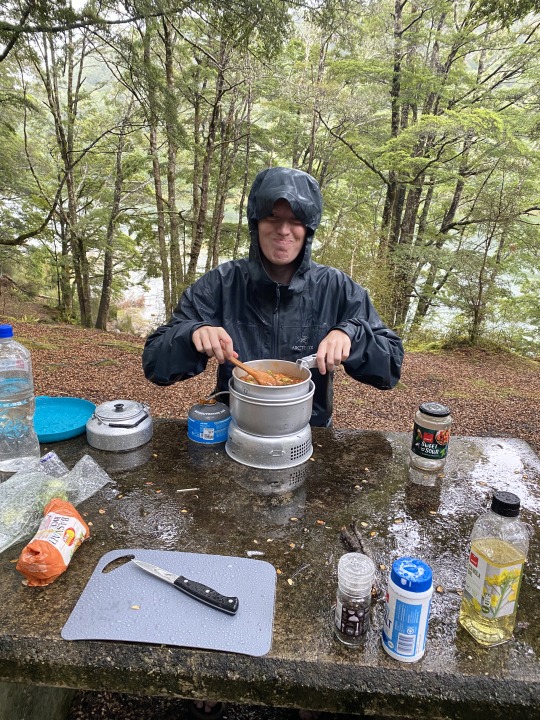
I dag, d 5. januar, har vi gjort os klar til vores tre dags vandretur på Kepler Track, som vi skal på i morgen, d 6. januar. Det glæder vi os helt vildt meget til, da vi får mulighed for at opleve Fiordlands på helt tæt hånd.
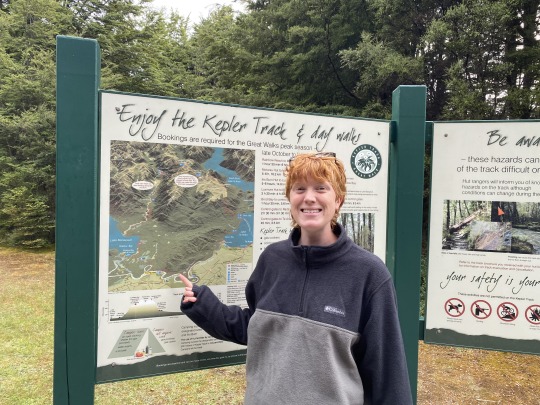
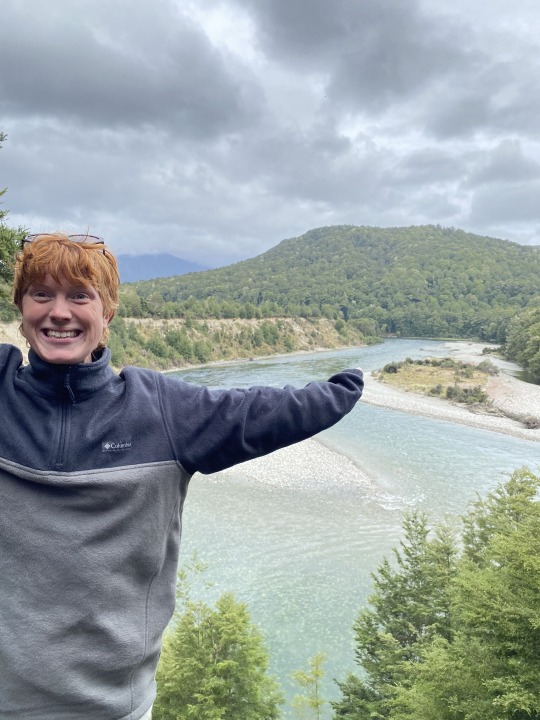
3 notes
·
View notes
Photo

Sunrise over the Moeraki Boulders, New Zealand [OC] [1451x2141]
7 notes
·
View notes
Text

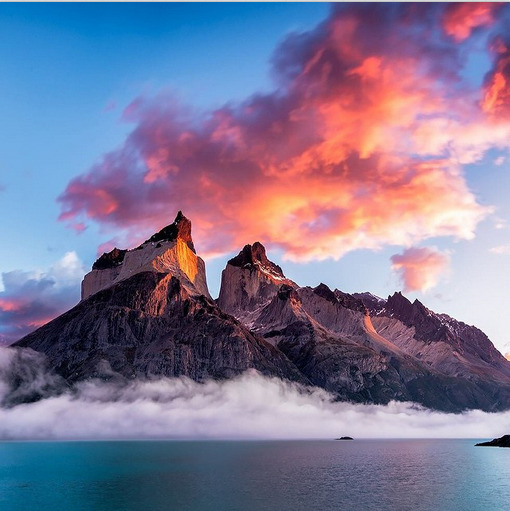
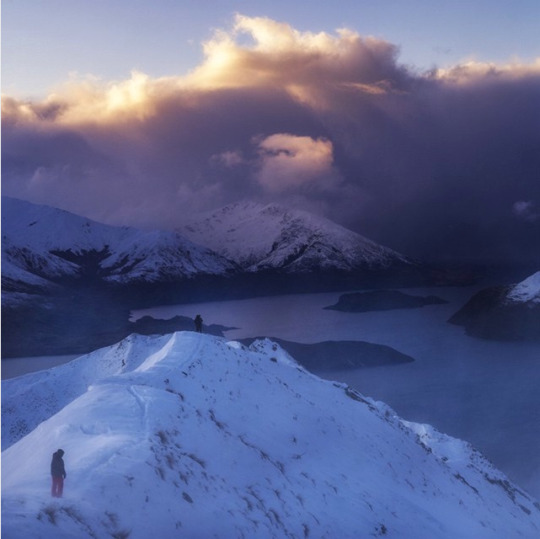



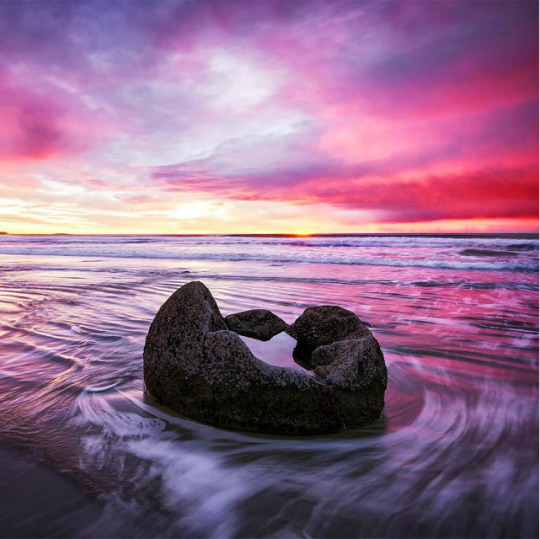

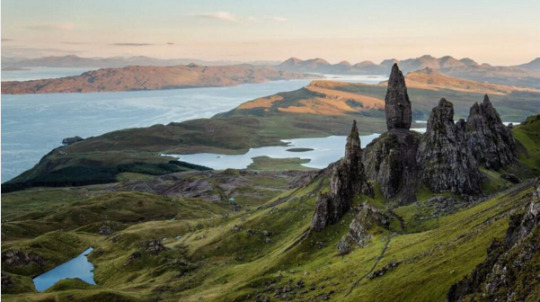
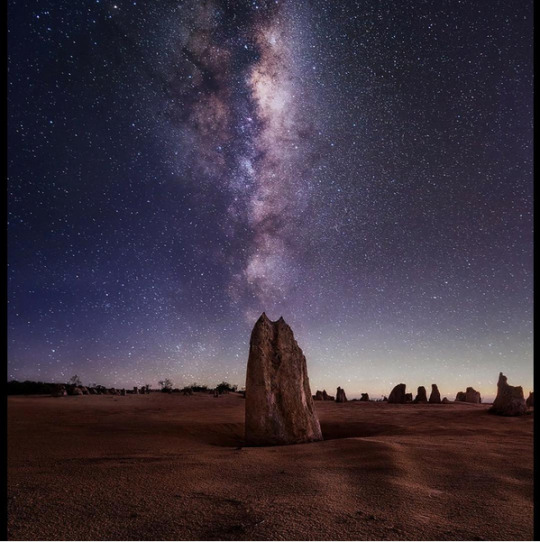

Photos and texts: @jake_anderson_photography
1-. Torres del Paine, Patagonia, Chile
2-. Torres del Paine has to be the most incredible place in the world
3-. @macduff75 - @jake_anderson_photography on the Roy's Peak. New Zealand
4-. Canyoning season is just around the corner! Things are starting to warm up, can't wait to slip the wetsuit and harness back on and plunge into these incredible places!
5-. Chasing the Aurora outside Tekapo
6-. Kosciuszko National Park
7-. Moeraki Boulders
8-. New Zealand
9-. Old Man of Storr - Isle of Skye, Scotland
10-. Pinnacles
11-. Taranaki. This rad volcano has to one of my all time favourites
2 notes
·
View notes
Photo

The Moeraki Boulders on Otago Coast, New Zealand
2 notes
·
View notes
Text

2023_09_30
1 note
·
View note
Text
Messieurs dames, bonjour ! Dans le post d'aujourd'hui, nous verrons comment la Touille s'incorpore à son nouvel habitat naturel. Tout d'abord, via la coiffure. Cette oeuvre d'art fut nommée "les algues".

Ensuite, telle un caméraman ninja, votre chère et tendre s'est aujourd'hui glissée, pour votre plus grand plaisir (et le sien, on ne va pas se mentir)... Dans une colonie d'otaries \o/ (enfin, de phoques à fourrure, on va supposer que c'est ça)
Je suis super contente, j'ai pu super bien les voir ! Je suis tombée sur une troupe de trois un peu par hasard, ils ont été aussi surpris que moi je crois, et le premier s'est enfui en se servant de son voisin comme d'un cousin d'amortissage pour pouvoir sauter de son rocher. Suivi du troisième, le plus à droite sur la photo... Leur camarade a moyennement apprécié 🤣 par contre, une fois dans l'eau, qu'est ce que c'est souple et élégant !

Je suis donc partie ce matin de mon beau lac d'hier soir, à fusionner avec les chardons locaux qui voulaient m'intégrer à leur prairie.
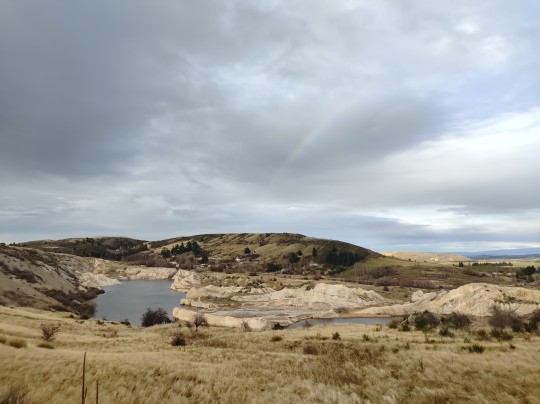
Une fois de plus, c'est un ancien filon d'or, d'où le paysage un peu étrange (et le lac d'ailleurs, qui n'existait pas avant qu'ils creusent).

Direction ensuite le littoral, qui n'est d'ailleurs jamais bien loin en Nouvelle Zélande ! Mission chag point, où je vois mes premières otaries ...

Et où je me demande s'il existe un seul endroit dans ce pays qui ne soit ne serait ce que "passable", tout est trop beau...

Puis le phare de Katiki, ou j'espérais voir des pingouins jaunes ! Pas de volatiles, et le phare en lui même n'avait pas d'intérêt, mais c'est là que j'ai observé l'énorme colonie d'otaries !
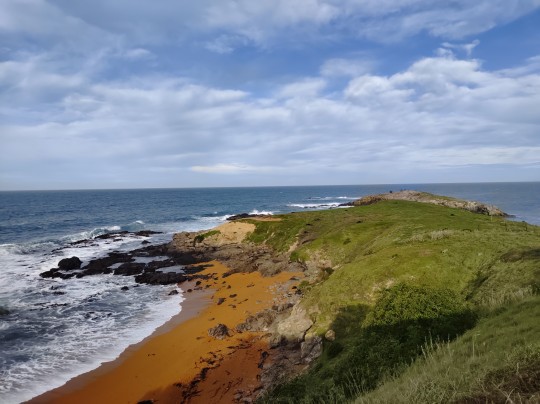
Je pars ensuite finir ma journée sur la plage des Moeraki boulders, une petite aberration géologique digne de l'Australie tiens.

(non, le caillou de la photo du dessus n'a pas été taillé) la plage est couvert de ces grandes boules, 3m de diamètre pour les plus grosses quand même ! Et je vous expliquerais bien comment ils se sont formés, mais mon cerveau n'aime toujours pas la geol, et je n'ai plus internet pour retrouver les explications que j'ai déjà oubliées, je vous dirai donc que si cela vous intéresse, Google est votre ami 😘

Je me pose ensuite tranquilou sur un parking/aire de pique nique pour y passer la nuit, on verra si je me fais virer de là ! L'avantage étant que je suis à 10m de la plage et orientée plein est, le lever de soleil devrait être royal demain 🥰
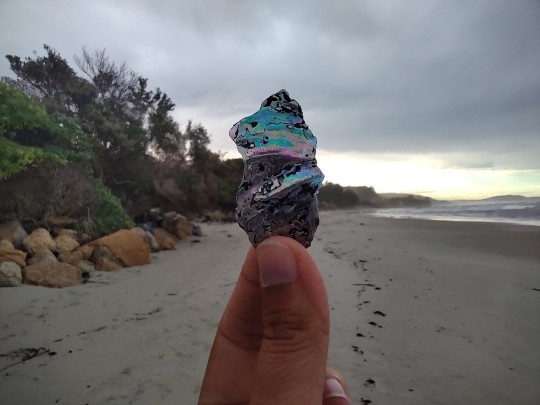
2 notes
·
View notes
Photo
Moeraki Boulders Beach
Boulder in New Zealand
The Moeraki Boulders are unusually large spherical boulders lying along a stretch of Koekohe Beach on the wave-cut Otago coast of New Zealand between Moeraki and Hampden. They occur scattered either as isolated or clusters of boulders within a stretch of beach where they have been protected in a scientific reserve
Moeraki Boulders - Wikipedia


The Moeraki boulders present a curious spectacle for inhabitants and tourists alike. Stretched across the sands of Koekohe Beach on the New Zealand coast, they stand isolated and sometimes scattered in clusters. It is believed that they are formed by wave erosion on local mudstone, honing them into a spherical shape.
Local Māori legend posits that stones are the remnants of eel baskets, water gourds, and kumara that washed ashore when Āraiteuru - the canoe that originally bore the Māori ancestors to New Zealand - was overturned.
(Source)
2K notes
·
View notes
Text

Pokemon Challenge 2024! #1130 Sphoulder.
Sphoulder is the evolved form of Roubble and is also a Rock type. Like the Moeraki Boulders he's based on, this guy is the size of a small car and likes to hang out on beaches partially submerged in the wet sand. He looks a little meaner than I intended - I was sort of going for tough and hardened - but that's okay. He's gotta protect his little ball children.
Catch the rest of the Te'Roa set in my master post!
#art#my art#pokemon#pokemon art#new zealand#pokemon challenge 2024#fakemon#rock type#boulders#pokemon land and sky
2 notes
·
View notes